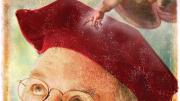In their early years, many American universities had openly religious agendas. Harvard’s own mission, according to a 1643 pamphlet, was “To advance Learning and perpetuate it to Posterity; dreading to leave an illiterate Ministery [sic] to the Churches.” But in the centuries that followed, professors began to see their mandate as seeking secular truth, rather than spreading the Gospel. Today, it may seem that religion has been very nearly banished from the ivory tower.
“There’s a way in which you imagine academicians developing their social and political attitudes in a realm of pure rationality devoid [of religious] concerns and entanglements,” says assistant professor of soci- ology Neil Gross, who coauthored a study of professors’ religious beliefs that will appear as a chapter in the forthcoming book The American University in a Postsecular Age. “Of course,” he adds, “we find that that’s not the case. Academics are social actors, just like everyone else.”
Last spring, in a survey of 1,500 professors (from dozens of fields, working at community colleges, four-year colleges, and elite research universities, denominational and otherwise), Gross and a colleague, Solon Simmons of George Mason University, asked about their respondents’ political and social views. They found that more than half of the academics believe in God and less than a quarter are either atheist or agnostic.
The numbers surprised them, “particularly given that religion is not something that most professors talk about too much with their peers,” says Gross. “I think it’s something that most academicians think of as a private matter, something that doesn’t have much of a place in departmental discussions, or in research.” (Though comparatively low, the percentage of nonbelievers in academia is still much higher than the percentage of self-described nonbelievers found among the general public. That figure is only about 7 percent, according to the nationwide General Social Survey, issued by the National Opinion Research Center at the University of Chicago.)
Just as surprising to the researchers was the range of belief across institutions and fields of research. Although nearly 37 percent of professors at elite research schools like Harvard are atheist or agnostic, about 20 percent of their colleagues have “no doubt that God exists.” At community colleges, in contrast, 15 percent of professors are atheist or agnostic, and 40 percent believe in God. These differences exist because of professors’ backgrounds and inclinations, says Gross. Professors who come from higher socioeconomic classes and are drawn to research over teaching or service—characteristics more common among academics at elite institutions—tend to be less religious.
A professor’s field of research or discipline is also predictive, he adds: psychologists and biologists are most likely to be nonbelievers (61 percent are atheist or agnostic), followed by mechanical engineers, economists, and political scientists. The most likely believers are professors of accounting (63 percent have no doubt that God exists), followed by professors of elementary education, finance, art, criminal justice, and nursing.
The data don’t show why psychology professors are much more likely than professors of accounting to be atheists; that would require a longitudinal study over decades. But theories abound, says Gross. One suggests that social scientists work hard to prove their fields of study are in fact science, and distancing themselves from religious belief helps in their attempt to do that. Another possibility is that social scientists spend their time analyzing man-made institutions, which Gross notes could have a “de-divinizing effect” on them. More data are needed to explain the observed differences, he says, but in general, “the further away the professor is from the traditional liberal-arts core, the greater the tendency to be religious.”
The researchers are now conducting in-depth follow-up interviews with about 70 professors, in six fields. One question asks what role, if any, they think religion should play in teaching and research—particularly timely, given the current public debates about stem-cell research and evolution.
In addition, given that millions of students are enrolled in American universities, “It’s not surprising that there’s a lot of concern both from committed secularists and from people of faith over what form the college experience should take,” says Gross. “Should it be a largely secular matter? Or should it be a place where one is taught about religion and perhaps even where one learns religious values?”
~Katharine Dunn
Neil Gross e-mail address: ngross@wjh.harvard.edu






